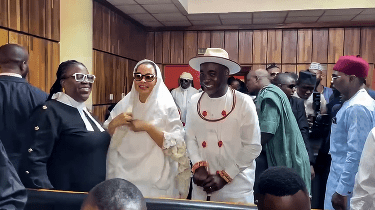Business
Japan Reaffirms Support For Infrastructure Dev In Nigeria
The Japanese Government
has reaffirmed its support for the promotion of high quality infrastructure to enhance the socio-economic development of Nigeria.
Counsellor, Embassy of Japan in Nigeria, Mr Masaya Otsuka, said this at the Nigeria-Japan Public-Private Conference for High Quality Infrastructure in Lagos.
The conference was organised by the Ministry of Lands, Infrastructure, Transport and Tourism (MLIT) of Japan, the Japan External Trade Organisation (JETRO), Lagos State Government and the Lagos Chamber of Commerce and Industry (LCCI).
According to him, Japan is committed to the growth of Nigeria’s economy by promoting quality infrastructure that is cost efficient and resilient.
Otsuka said Japan acknowledged the infrastructure challenges confronting Nigeria and was ready to support the country to overcome it in a sustainable way.
“Infrastructure forms a basis for economic growth, improves the quality of life of its citizens and places a country on a sustainable path.
“If you are thinking of development, you have to make it a long term programme that will be sustainable to boost economic growth.
“Japan has a wealth of experience in building quality infrastructure using advanced technology that are made to last.
“We believe in Nigeria’s future. We are ready to strengthen investment in Nigeria.”
Deputy Minister, Japan Construction, Engineering and Real Estate Industry, Mr Yasuki Kaibori, said Japan could support Nigeria through the sharing of experiences and technologies.
Kaibori said the conference was to strengthen Japan’s bilateral economic relationship with Nigeria.
President of LCCI, Mrs Nike Akande, said the conference was timely considering the critical level of Nigeria’s infrastructural deficit.
She said a report from the African Development Bank (AFDB) estimated Nigeria’s core stock of infrastructure at 20-25 per cent of GDP, compared with 70 per cent recorded by other middle income countries.
“This leaves an infrastructure deficit of 300 billion dollars, while there are considerations on the use of pension funds for infrastructure financing and the 2016 federal budget allocating N1.8 trillion to capital trillion to capital expenditure.
“There is definitely need for Foreign Direct Investment (FDI) to deepen finance for infrastructure in Nigeria.”
According to her, the Infrastructure Concession Regulatory Commission (ICRC) revealed that N3.1 trillion is needed to bridge the infrastructure gap in the transport sector.
Executive Vice President of JETRO, Dr Katsumi Hirano, said Nigeria had to develop her infrastructure to strengthen the competitiveness of the manufacturing and agriculture sector.
Mr Bello Husseini, Charge d’affaires ad interim, Embassy of Nigeria in Japan said the relationship between Nigeria and Japan dates to 1960.Husseini said Japan had supported Nigeria in healthcare, education, capacity building, research and development and infrastructure.
Business
MWUN Backs Nigeria’s Bid For IMO’s Category C Seat
Business
Food Security: FG To Review Nigerian Agric laws
Business
Okpebholo Charges Committee To End Herders, Farmers Clash In Edo … Inaugurates Boundary Committee
-
News2 days ago
Alia Commends Tinubu For Ordering Arrest Of Armed Herders, Bandits
-

 News2 days ago
News2 days agoDefamation: Court Grants Natasha N50m Bail
-
Sports2 days ago
Abia Warriors, Rivers United Prepares for next season
-
Business2 days ago
Food Security: FG To Review Nigerian Agric laws
-
Rivers2 days ago
Okrika SOLAD Charges Students On Involvement In Drugs, Others
-
Rivers2 days ago
Rivers State University Introduces SponsorsLink To Address Communication Gap
-
News2 days ago
FG Restates Commitment To Improve Rural Roads, Markets, Others
-

 Politics2 days ago
Politics2 days agoINEC Denies Registering New Political Parties

